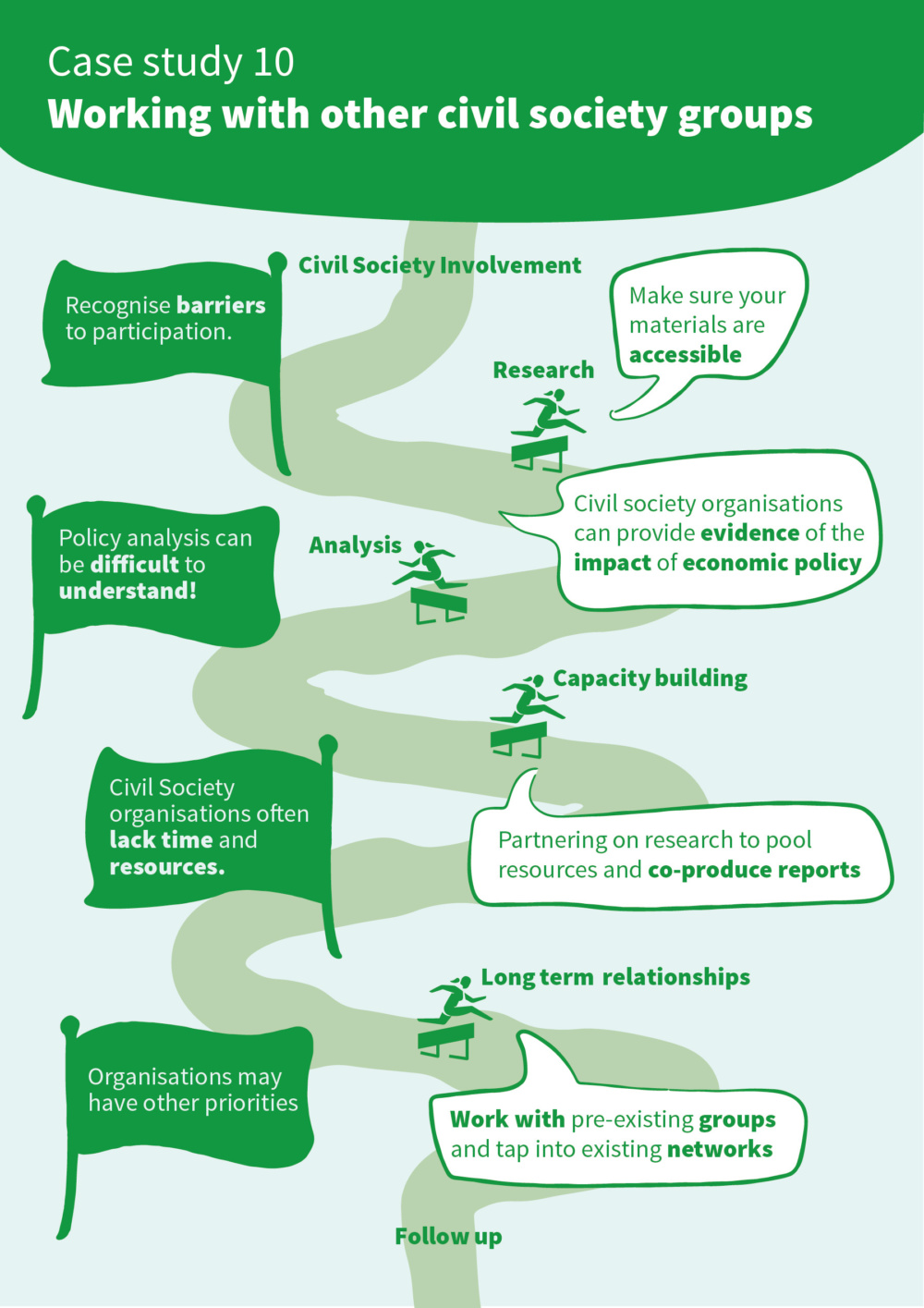The Women’s Budget Group was set up to bring together academics and women’s organisations to talk about the impact of the budget on women. Civil society organisations have always played a key role in the Women’s Budget Group. We have worked on a series of local and national projects in partnership with civil society organisations in order to carry out research and build the capacity of individuals and groups to influence policy at a local level.
This section draws on case studies selected from some of these projects, and discussions with people working on gender budgeting projects in other countries to highlight some of the key issues and lessons learned.
Civil society involvement is important if gender budgeting is to be more than just an academic exercise. Civil society groups can:
- Research – by providing evidence of the impact of economic policy. This can include highlighting unexpected impacts, and showing how a change in one area can impact on what might seem like a completely unrelated area – for example cuts to public transport budgets preventing women accessing healthcare services.
- Hold decision-makers to account – through carrying out local research, analysing local budgets and putting pressure on local or national decision-makers.
- Promote research findings to policy-makers and the wider public through campaigning and advocacy work.
However, there can be barriers to civil society participation in gender budgeting work. These include:
- Analysis, as well as the policy-making process, may be inaccessible, overly complex or difficult to understand.
- Civil society, particularly small grassroots organisations, may be overstretched and lack the time and resources to take part in gender budgeting projects.
- Organisations may have other priorities and not see gender budgeting as relevant to their work.
- National organisations may lack local contacts or understanding of the local context.

